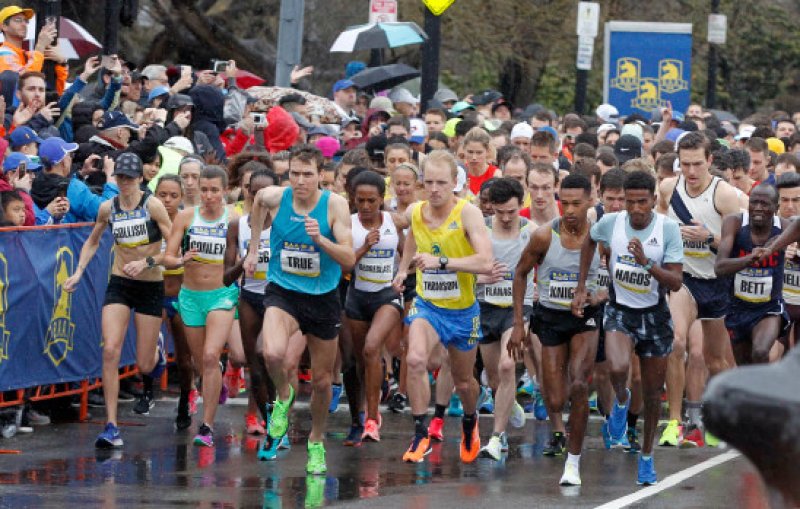Let’s call it the “running made us human” hypothesis: According to some scientists, distance running was key to our ancestors’ evolutionary success.
…
The role of running in human evolution has been most intensely investigated by Daniel Lieberman, a Harvard University evolutionary biologist and 9-time Boston Marathon runner. Lieberman and others hypothesize that roughly 2 million years ago Homo erectus ancestors, armed with sharpened sticks and stones, were able to kill prey by persistence hunting. …
This scenario could solve a major puzzle in human evolution: how did Homo erectus get meat? Researchers assume these hominins hunted because archaeological sites, between 2 and 1 million years old, have yielded plenty of butchered animal bones. Yet stone tools back then were … better suited for processing carcasses than impaling moving targets. Projectile weapons, like the bow and arrow, were probably not invented until the past 80,000 years. …
But persistence hunting might have been the secret. To avoid overheating, most predators forgo hunting during the hottest hours. Humans — and potentially earlier Homo species — can handle heat thanks to adaptations such as furless bodies and increased sweat glands. Around high noon while most carnivores napped, human ancestors could have hunted by persistently chasing and tracking prey.
Read full, original post: Running Made Us Human: How We Evolved to Run Marathons































